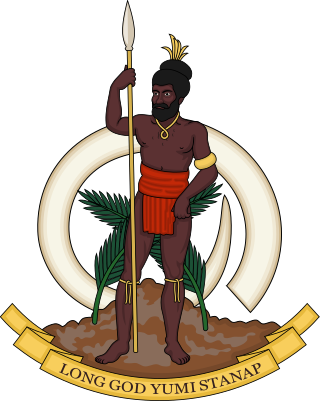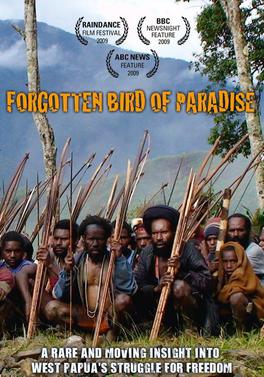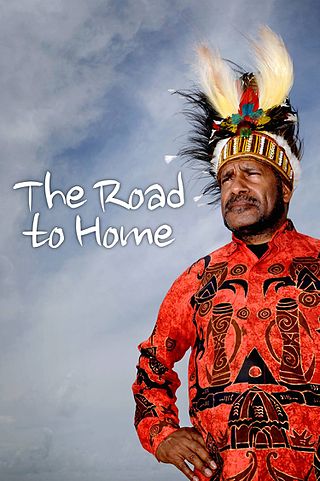
The International Parliamentarians for West Papua (IPWP) are a cross-party political group of politicians from around the world who support self-determination for the people of the Indonesian region of West Papua.

The International Parliamentarians for West Papua (IPWP) are a cross-party political group of politicians from around the world who support self-determination for the people of the Indonesian region of West Papua.
IPWP were launched at the Houses of Parliament, London, UK on 15 October 2008. Speakers at the launch included Melinda Janki (International Human Rights Lawyer), Hon. Andrew Smith MP (UK), Lord Harries (UK), Hon Lembit Öpik MP (UK), Lord Avebury (UK), Benny Wenda (West Papua), Hon. Powes Parkop MP (Papua New Guinea), Hon. Moana Carcasses Kalosil MP (Vanuatu) and Carmel Budiarjo (TAPOL). [1]
There have been further launches of IPWP held in Port Moresby, Papua New Guinea hosted by Powes Parkop in September 2009, and in the European Parliament in Brussels, Belgium hosted by Caroline Lucas MEP in January 2010.
IPWP was set up by exiled West Papuan independence advocate Benny Wenda, [2] and is chaired by the British Labour Party MP Andrew Smith and Lord Harries. Smith is also the Chairman of the All Party Parliamentary Group for West Papua. The main goal of IPWP is to develop international parliamentary support and awareness for the West Papuan independence movement. [3] The IPWP takes as its model a similar group that helped lead the independence movement of East Timor. [2]
By 2009, the IPWP included fifty parliamentarians from countries including Papua New Guinea, Australia, Sweden, New Zealand, Vanuatu, the Czech Republic, and the United Kingdom. [4] In February 2012, the Australian government officially distanced itself from an IPWP meeting that took place in Canberra, stating that it remained "fully committed to Indonesia's territorial integrity and national unity". [5] As of 2020, there are approximately 80 current parliamentarians listed as signatories from countries across five continents. [6]
Plans were also announced to set up another body called International Lawyers for West Papua (ILWP), to work in unison with IPWP, and develop and co-ordinate support within the legal sector for West Papuan self-determination. The launch for this took place in April 2009 in Guyana, South America. Since 2009 ILWP has provided legal advice to the movement for self-determination in West Papua, including advice to the United Liberation Movement for West Papua (ULMWP)

Vanuatu maintains diplomatic relations with many countries, and it has a small network of diplomatic missions. Australia, France, Japan, New Zealand, the People's Republic of China, South Korea and the United Kingdom maintain embassies, High Commissions, or missions in Port Vila. The British High Commission maintained a continued presence for almost a century, though closed from 2005 until reopening in 2019.

Andrew David Smith is a British Labour Party politician who was the Member of Parliament (MP) for Oxford East from 1987 until 2017. He served in the Cabinet as Chief Secretary to the Treasury from 1999 to 2002 and then as Secretary of State for Work and Pensions from 2002 to 2004.

The Free Papua Movement or Free Papua Organization is a name given to an independence movement based on Western New Guinea, seeking secession of the territory currently under Indonesian administration. The territory is currently divided into six Indonesian provinces of Central Papua, Highland Papua, Papua, South Papua, Southwest Papua, and West Papua, also formerly known as Papua, Irian Jaya and West Irian.

The Republic of West Papua, alternatively known as the Federal Republic of West Papua is a quasi-state consisting of the Western New Guinea region, which is currently part of Indonesia on the continent of Oceania. The region has been part of Indonesia since 1 May 1963 under several names in the following order, West Irian, Irian Jaya, and Papua. Today the region comprises six Indonesian provinces: Papua, Central Papua, Highland Papua, South Papua, West Papua, and Southwest Papua.

The Act of Free Choice was a controversial plebiscite held between 14 July and 2 August 1969 in which 1,025 people selected by the Indonesian military in Western New Guinea voted unanimously in favor of Indonesian control.

The United Liberation Movement for West Papua (ULMWP) is an organization formed from the merger of three political independence movements seeking independence for Western New Guinea from Indonesia. The ULMWP was formed on 7 December 2014 in Vanuatu uniting the Federal Republic of West Papua (NRFPB), the West Papua National Coalition for Liberation (WPNCL) and the National Parliament of West Papua (NPWP).

The Melanesian Spearhead Group (MSG) is an intergovernmental organization, composed of the four Melanesian states of Fiji, Papua New Guinea, Solomon Islands and Vanuatu, and the Kanak and Socialist National Liberation Front of New Caledonia. In June 2015, Indonesia was recognized as an associate member.
Boka Kondra is a Papua New Guinea politician. He was a member of the National Parliament of Papua New Guinea from July 2007 until December 2016, representing the electorate of North Fly Open, variously as an independent, for the National Alliance and for the People's National Congress. He was Vice-Minister for Mining (2011-2012) and Minister for Tourism, Arts and Culture (2012-2016) in the O'Neill government. Kondra was dismissed from office in December 2016 after a leadership tribunal found him guilty of misappropriation charges.

The Republic of Vanuatu has been a member of the United Nations since the year of its independence in 1980. The country was a particularly active member in the 1980s, when, governed by Prime Minister Father Walter Lini and represented by Ambassador Robert Van Lierop, it was a consistent advocate for decolonisation. Subsequently, its emphasis within the United Nations shifted to the issue of climate change and the vulnerability of Small Island Developing States.
The East Timor and Indonesia Action Network (ETAN) is a nonprofit US organization supporting human rights throughout Southeast Asia and Oceania. ETAN was founded in 1991 to support the right to self-determination of Timor-Leste. In 1999, that goal was significantly realized when the people of East Timor voted for independence. Since then ETAN has focused on building on its success in support of justice and self-determination in Timor-Leste and the surrounding region.

The Lani Singers are husband and wife, Benny and Maria Wenda. They come from the Baliem Valley in the remote central highland region of West Papua in the south-west Pacific, and play songs that are rooted in the sacred rituals of the Lani tribe. It is claimed that the way of living of those living in this part of West Papua has remained largely unchanged since the Stone Age.

Benny Wenda is a West Papuan independence leader and Chairman of the United Liberation Movement for West Papua (ULMWP). He is an international lobbyist for the independence of West Papua from Indonesia. He lives in exile in the United Kingdom. In 2003 he was granted political asylum by the British government following his escape from custody while on trial.

The Papua conflict is an ongoing conflict in Western New Guinea (Papua) between Indonesia and the Free Papua Movement. Subsequent to the withdrawal of the Dutch administration from the Netherlands New Guinea in 1962 and implementation of Indonesian administration in 1963, the Free Papua Movement has conducted a low-intensity guerrilla war against Indonesia through the targeting of its military, police, as well as civilian populations.

Forgotten Bird of Paradise is a 2009 documentary film directed by British filmmaker Dominic Brown, about the struggle for independence being fought in the Indonesian region of West Papua. The film was shot undercover, and includes interviews with human rights victims and political prisoners, as well as footage of separatist guerrillas at their jungle stronghold.
The National Committee for West Papua is an organization in Papua, Indonesia that campaigns peacefully for a self-determination referendum for Papuans. It was established on 19 November 2008 by a number of Papuan NGOs. The right to self-determination was provided for in an agreement between the Netherlands, Indonesia, and the UN in 1962.

Powes Parkop is a Papua New Guinean lawyer and politician, from Manus Province. A former lecturer in Law at the University of Papua New Guinea, he is the current governor of Port Moresby and the National Capital District serving for three terms. He was elected to the National Parliament of Papua New Guinea in July 2007. He was re-elected in September 2012. In 2017, Parkop was elected again as Governor serving his third term.

The Social Democratic Party is a political party in Papua New Guinea. It was founded in June 2010 by Port Moresby Governor Powes Parkop.
The Wantok Blong Yumi Bill was a bill unanimously adopted by the Parliament of Vanuatu in June 2010. It was derived from a "People’s Petition", tabled in Parliament by Independent MP Ralph Regenvanu.
Buchtar Tabuni is a Papuan independence activist, Chairman of the National Parliament of West Papua (PNWP), incorporating the National Committee for West Papua, and United Liberation Movement for West Papua (ULMWP) representative.

The Road to Home is a 2015 feature-length documentary about Benny Wenda, the West Papuan independence leader and Nobel Peace Prize nominee. Since his escape from an Indonesian prison in 2002, where he was held in isolation and tortured as a political prisoner, Benny has been an unceasing crusader on the international scene, campaigning to bring about an end to the suffering of his people at the hands of Indonesia's colonial regime.